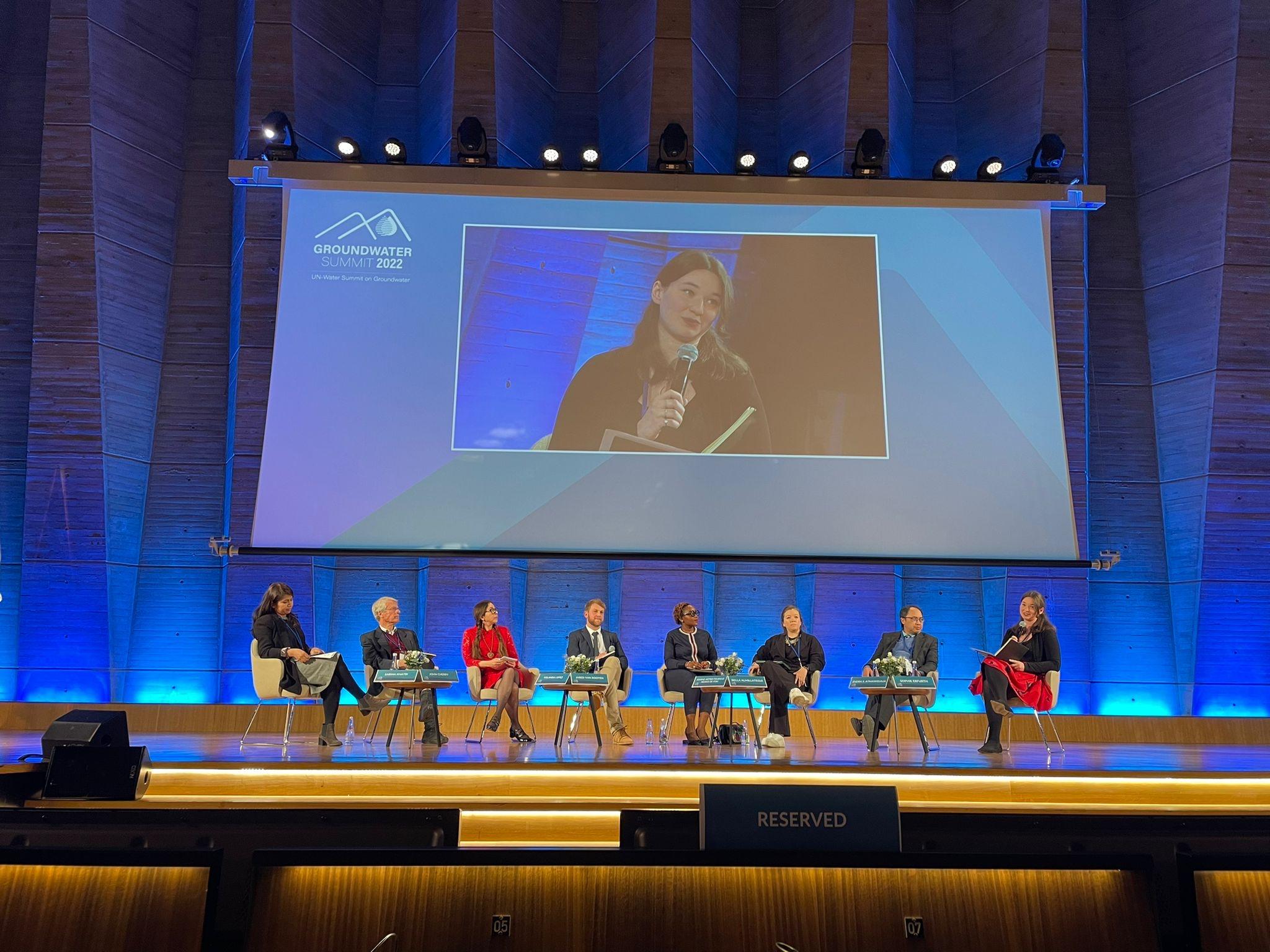DPhil student Sophie Erfurth presents at UN Groundwater Summit

On 8 December, Sophie Erfurth, a DPhil student at the Smith School of Enterprise and the Environment, University of Oxford presented at the Youth Forum event of the UN’s inaugural Groundwater Summit. Sophie conducts research within the School’s Water Programme, led by Professor Rob Hope.
The Groundwater Youth Forum aims to give the opportunity to youth, students and young ground water professionals to contribute to the global debate about water resources and a more water secure world.
In her speech, Sophie highlighted the potential transformational power of young people within the sector, but cautioned decision-makers not to see youth participation as a box ticking exercise.
She also addressed the role of technology, data and information in addressing pressing groundwater challenges.
She said:
The goal of generating new groundwater data is not a goal in itself but only serves the purpose of more effective and targeted interventions... One of the greatest problems regarding data and information in the groundwater sector is that the information that we do have is not converted into action.
Research has shown the importance fitting governance rules to local conditions. Sophie argued that policy and practice often still lag behind these findings and fail to address the social complexities inherent to groundwater management dilemmas.
We need realistic, feasible reforms that can address the groundwater challenges of today. Realistic and feasible because of just how urgent the situation is. As we reach peak groundwater extraction, we need to be smarter about using our resources. We need to do more with less.
Having the opportunity to address the highest level of decision-makers in the water sector, I was committed to speak candidly about the shortcomings of global groundwater governance,” reflects Sophie. “We need to have more difficult and uncomfortable conversations in our sector, and if young professionals can play a role in triggering some of these discussions, then we have already achieved something.
Sophie began her DPhil in 2020, having previously worked as a policy officer in Germany’s Federal Ministry for Economic Cooperation and Development.
I decided to return to academic research as I felt that practitioners in the sector lacked the tools necessary to effectively address water governance problems, particularly in uncertain and fragile contexts.
Working in the water sector allowed me to not have to compromise on my interdisciplinary interests. Whether its tracing norms and decision-making of water users or modelling complex social-ecological groundwater systems and dynamics, the water sector has proven a brilliant vehicle to engage all corners of my intellectual curiosity.
